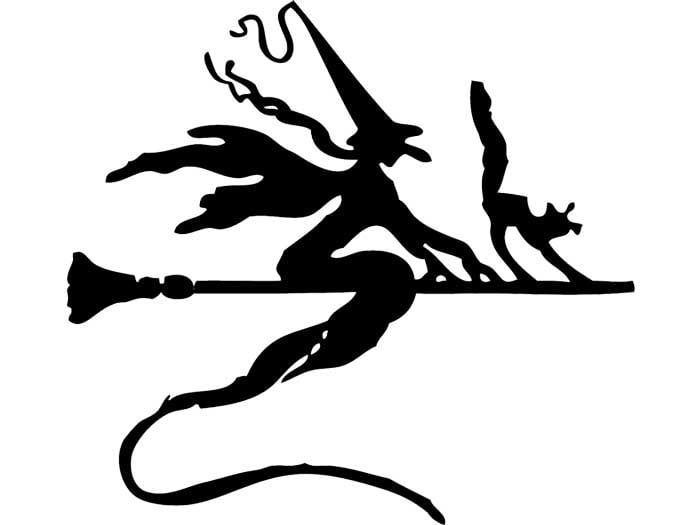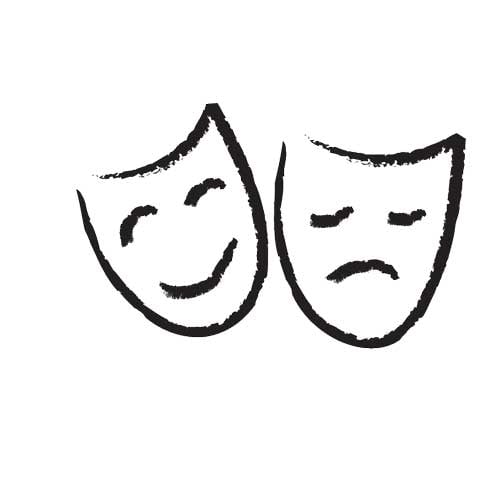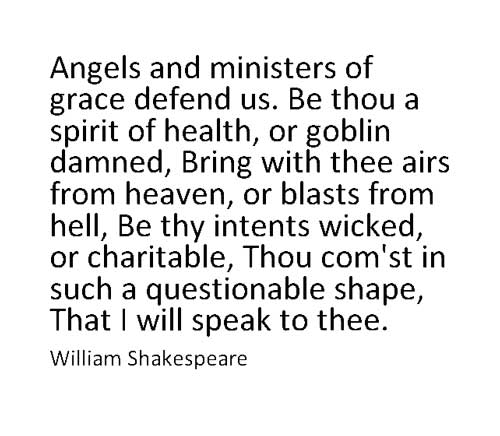Macbeth is considered to be one of Shakespeare’s greatest plays. It’s also, however, widely regarded as one of his most unlucky. Accidents, injuries, and catastrophe seem to plague productions of this play wherever it is performed. The high number of misfortunes associated with the play has given rise to the belief that a curse haunts Macbeth. Actors, audiences, and fans of Shakespeare fear backfire from association so much that they even avoid uttering the play’s name out loud.

A Brief History of the Macbeth Curse
While writing the play, Shakespeare noted that his patron, King James, believed in supernatural forces. In a bid to endear himself to the monarch, Shakespeare decided to include witches as characters in the play. His portrayal was extremely realistic; in fact, he included verbatim incantations and ritual practices. Ironically, King James was disturbed by the inclusion of witches in a play meant for his pleasure, and he banned the play from being performed for several years. It’s said that when real practitioners of witchcraft witnessed the play and saw their sacred ceremonies being exploited, they exacted revenge by placing a curse on its current and future productions.
Since then, the play has suffered its fair share of production-related accidents, injuries, illnesses and deaths. In Amsterdam during 1672, a murder occurred on stage when a prop dagger was replaced with a real one. During an 1849 production, a deadly riot broke out as the result of heckling. An actor suddenly lost his voice on stage in 1934, and even his replacement had to be hospitalized for a fever. Production and prop mishaps tend to follow this production through the centuries and across oceans.

Ways to Prevent the Curse
For actors and audiences, the easiest way to prevent the curse of Macbeth from manifesting is to simply avoid saying the name of the play while in the theater. Over the years, a series of nicknames for the play have taken the place of its formal title: when actors refer to the production, they often call it “the Scottish Play,” “the unmentionable,” or simply, “that play.” All aspects of the play must be handled with respect. Misuse of sets, costumes, or props can invite bad luck. Even quoting the play has been said to bring misfortune.

What to Do When Someone Utters “Macbeth”
The most common way to counteract the bad luck associated with saying “Macbeth” involves performing a ritual with multiple, but easy, steps. People responsible for saying the name should step outside of the theater, turn around three times, utter expletives of their choice, and request permission for re-entry into the theater before walking in again. Spitting may also have a beneficial effect after uttering the play’s title.
Some believers in the curse revere Shakespeare as the patron saint of the play. When the name “Macbeth” is heard in a theater, these individuals will often invoke his protection by quoting from Hamlet. The line “Angels and ministers of grace defend us” is said to act as a spiritual shield against the curse and its negativity. Likewise, the phrase “Thrice around the circle bound, evil sink into the ground” all but stops the curse in its tracks.

Logical Explanations
Thespians and theater-lovers continue to respect the role that the production and its curse have played throughout history. Many still fear the curse’s emergence and heed centuries-old warnings. There are, however, those who are quick to dismiss those allegedly connected tribulations. For some, the bad luck associated with the play can be easily explained away. It could be argued that dark lighting and violent themes contribute to dangerous stage conditions.
Similarly, unsafe stage practices increase the probability of accidents. The popularity of the play and the length of its run naturally also gives it time to collect incidents and stories that contribute to its mythology. Regardless of the conclusion you draw, there is no doubt that the curse of Macbeth plays a critical role in the history of the theater and Shakespearean tragedies.
LEARN MORE
For more information about the Scottish Play, please refer to the following websites:
- Complete List of Shakespeare’s Plays, by Genre
- Shakespeare and the Tragic Virtue
- The Tragedy of Macbeth
- Macbeth’s Scene With Witches and Incantations
- Macbeth Web Quest (DOC)
- The Character of Lady Macbeth
- Macbeth: Historical Background of Witches and Witchcraft
- Theater Superstitions
- Theatrical Superstitions and Saints
- William Shakespeare Biography
- Mystery Surrounds Roots of Macbeth Curse
- Cracking the Coven: Shakespeare, the Supernatural, and the Female Power Base (PDF)
- The Politics and Prophecy in Shakespeare’s Macbeth
Home Theater Seating
- Home Theater Seating
- Reclining Theater Seats
- Black Theater Chairs
- Theater Sofa
- Leather Home Theater Seating
- Discount Home Theaters
- Light Gray Theater Seats
- Media Room Layout
- Best Buy Couches
- Palliser Home Theatre Seating Canada
- Living Room Home Theater Seating
- Best Store To Buy A Couch
- Sectional
- Expensive Leather Chair
- Discount Home Theatre Seating
- Furniture On Sale Online
Decor & Accessories
- Diy Home Theater Seating Riser
- Full Grain Leather Recliner Sofa
- Home Movie Theater Design
- Is Top Grain Leather Genuine Leather
- Home Theater Carpeting
- Diy Home Theater Rooms
- Rocker Seat
- Movie Theater Size
- How To Design A Home Theater
- Theater Platform Construction
- Home Theater Platform
- White Home Theater Seats
- Octane Bolt
- Storage Sectional Couch
- Becket Palliser
Top Pages
- Movie Chairs
- Movie Theater Lounge Chairs
- Magnolia Theater Best Buy
- Theater Room
- Theatre Seats for Sale
- Wholesale Theater Seats
- Custom Home Theater Seat
- Electric Theater Seats
- One Movie Chair
- American Made Leather Couch
- Theater Room Setup
- Chaise Sectional Couches
- Chair With Cup Holders
- What Resolution Is 8K
- Small Theater Chairs

